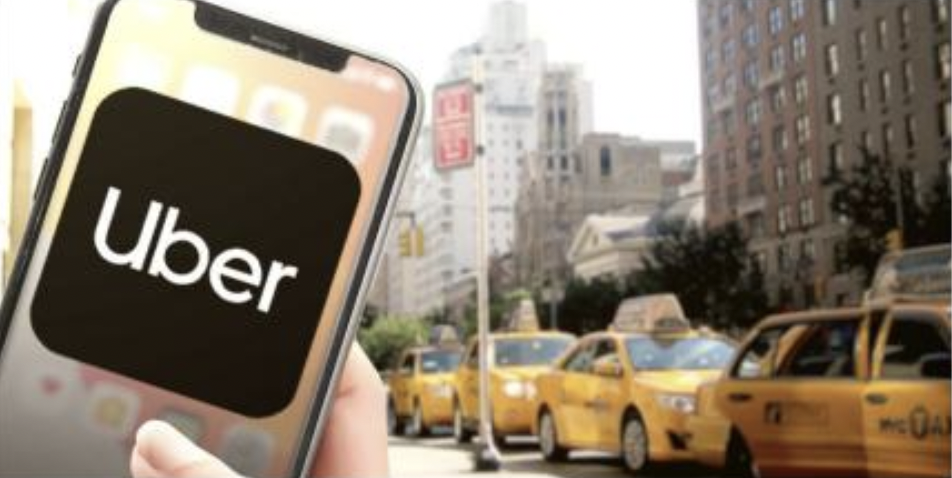
In the past, a person could enjoy the luxury of hailing a cab, calling a taxi or getting an Uber as needed. The driver did not have to know you, and you did not have to know the driver. You rode in the car, got let out where you wanted to go, paid your money and went your separate ways.
Today, riders and drivers alike can screen each other’s ratings before their scheduled trip. Uber users are rated by their driver after they are dropped off at their destination.
If your passenger rating gets low, you may become less likely to get a ride in the future. These ratings are completely subjective and not based on any type of codified criteria, effectively allowing the driver to assign you a good or bad rating for almost any reason.
Passengers are afforded the same opportunity to rate drivers, and both the driver and passenger’s average ratings that are displayed on the Uber app are based off of the last 500 ratings one has received.
On the surface, this seems like a practical protection from the experience of a bad driver or a disruptive passenger. It allows the driver to opt out if they are about to pick up a potentially risky passenger with a poor track record and allows a passenger to avoid a rude or dangerous driver.
Despite the benefits this rating system offers, I am deeply skeptical of the implementation of this rating system. Rating systems such as this one are foretelling of a dystopian future where human interaction is consequence-driven and motivated by the fear of another’s opinion of you and the ability of this opinion — however it is formed — to prevent you from obtaining needed services.
Readers who have seen “Black Mirror” will recall the episode “Nosedive,” which portrays a society where humans receive a rating from one to five stars in every social interaction they partake in. The fluctuation in these ratings impact one’s socioeconomic status, ability to obtain needed medical care and even receive basic goods and services.
The ubiquity of the rating system works to make people incredibly self-conscious and very desperate to please one another. The main character of the episode, Lacie, puts immense pressure on herself to be socially proficient at all times and say what people want to hear so that they will rate her well.
While it seems like it could be a good idea, in principle, to have people working this hard to please each other, it adds a visceral insincerity to the social interaction seen in the episode that is incredibly uncomfortable to watch. Lacie’s continued engagement in this fabricated social reality results in an accumulation of anxiety, pent up aggression and causes her to deeply internalize almost anything she actually wants to say.
An additional critique I have of this rating system is the lack of solidified criteria that guide the rating that is given. This makes the rating one is given, in many cases, biased, unreliable and unfair.
This is especially concerning as a result of the manner in which confirmation bias plays into the interpretation of other people’s behavior. Those who have received bad reviews are more likely to receive bad reviews in the future regardless of whether their behavior actually warrants them. This is because the driver has been primed by the passenger’s low rating to interpret their actions and words through a more negative lens, and when you are looking to find something bad or dislikable, you will.
To try to get positive ratings, people are falsely acquiescent and only engage in shallow niceties that add to the disconnect felt in an already alone and alienated society. Instead of having a real conversation with a unique individual you will likely never see again that may give you a perspective you have never previously considered, in its place is a shallow, brain-dead engagement loaded with insincere overthanking and a phobia of offending your driver that undermines the initiation of any meaningful conversation.
Allowing ourselves to become “prisoners to the rating” and fundamentally alter the manner in which we speak to others is another way deep societal disconnect is sown into our society by sabotaging a variety of microinteractions. Other interactions that are under attack include the automation of ordering from restaurants, contactless delivery and the disappearance of in-person free play in children in exchange for immersive video games.
Another reality of the situation is that mean, antisocial and misunderstood people need to go places too, and American capitalism is founded upon the principle that reception of a service is dependent on your ability to pay for it rather than being contingent on you being a perfectly behaved conformist robot who suppresses all signs of individuality for a five-star rating.
Embracing these rating systems in services like Uber makes themmore likely to be implemented by other businesses in the future and progressively infiltrate into more integral services. If you give them an inch, they will take a mile, and I have no doubt this could serve as the first step in establishing a social credit system similar to the one seen in China here in the U.S.
China’s Social Credit System aims to make sure the people and businesses living or operating in China are compliant with rules and regulations by imposing rewards for compliance and penalties for noncompliance. Once one gets a poor enough social credit score, they are “blacklisted” and cannot fly or get a speed train ticket. Sounds familiar.
I fear the social reality the evolution and increased prevalence of this rating system could bring. Just imagine living in America — the land of equal opportunity — and not being able to eat at a restaurant, go to a baseball game or renew your driver’s license because your rating is not high enough?


